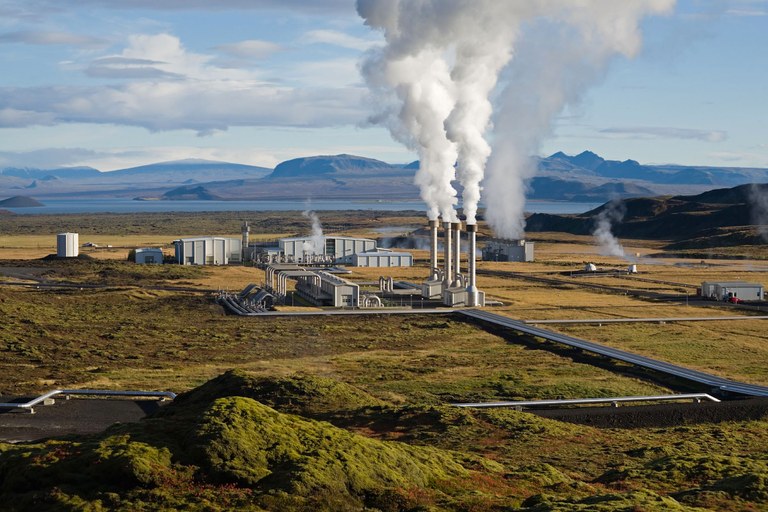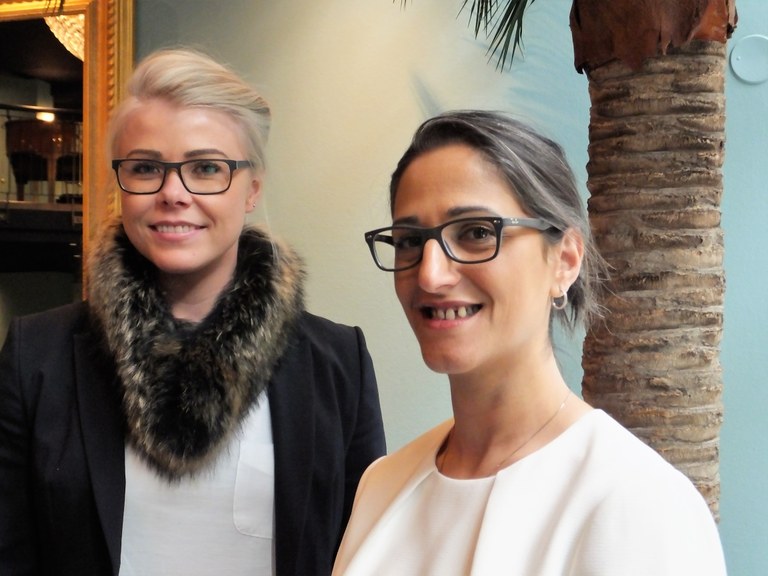Palestinian, woman, dyslexic – and successful businessperson in Iceland
Fida Abu Libdeh arrived in Iceland aged 16. “I didn’t even understand whether my teacher was trying to teach me Icelandic or Danish. It wasn’t until many years later I learnt I had dyslexia,” she says.
She still managed to create her own company, Geosilica, which extracts minerals from the warm water which is pumped out of the ground by geothermal power plants. The main product is silica (silicon dioxide, SiO2) which is sold as a health product. According to the marketing it can prevent osteoporosis, strengthen your nails and hair and make your skin more elastic.
Fida Abu Libdeh tells her own life story in brief and simple terms at the conference The Future of Work, hosted in Oslo by the Nordic Council of Ministers and the Norwegian Ministry of Children and Equality on 7 and 8 February.
“You know what it can be like when you’re 16. I struggled. At school I understood everything that had anything to do with numbers, but it was impossible for me to learn Icelandic. All my teachers thought it was because I was a foreigner, but it turned out to be because I was dyslexic.”
Fida had no trouble reading Arabic.
“That is because Arabic letters are linked up, creating one continuous line. My dyslexia is the kind where individual letters jump about when I try to read them.”
As a result she failed her upper secondary education exams.
“I wrote a letter to the university every year and asked to be allowed to study there despite failing my Icelandic, but was told no every time.”
She was forced to start working in order to keep her permit to stay which she was given when she moved there with her mother.
Only low salary jobs
“Without an education I only got badly paid jobs, of course. I had a lot in common with those working there. Most of us were foreigners, we were unhappy and saw now future in Iceland.
“Ten years after coming here I therefore decided to move back to Palestine in 2004. But when you have lived abroad for that long, you either need a very high education or a lot of money to get by. I had neither. So in 2007 i returned to Iceland. This time I was really determined to finish my education.”
What finally changed her life was when she heard about a private educational institution, the Keilir Institute next to the former American airbase at Keflavik. The students were quartered in old soldier barracks and could gain the necessary competence for further studies at university level.
“My student mentor wondered why my maths and chemistry grades were so good and my language was so poor. She made me sit a test. At the age of 26 I discovered I had dyslexia. I was given an aid linked to my computer which would read texts out loud for me. In one year I went through four years of upper secondary education and could finally start studying at the university.”
She went on to study engineering and did the allocated five years in three and a half.

The geothermal power plants, like Nesjavellir above, produce 40,000 tonnes of silica every year. Geosilica uses only 1,000 tonnes, for the time being. Photo: Gretar Ívarsson
In her final exams she wrote about the warm water used by geothermal power plants. Ground heat is the most important energy source on the volcanic island of Iceland.
“For the power industry the amount of minerals in the warm water is a problem. But before I did it, no-one had asked whether they could be used for something.
“It hit me that the minerals might be useful as health products,” says Fida Abu Libdeh.
She and a fellow student founded the company Geosilica. They developed a unique technology to extract the minerals from the water. Since they both had engineering backgrounds, Fida re-entered the university and got a master degree in business administration. They managed to secure funding from an Icelandic technology development fund and Fida Abu Libdeh also got a grant for female entrepreneurs.
“We got a group of people from different backgrounds and training together, who all had the same goal: to make health products from geothermal water.”

Ágústa Valgeirsdóttir is Geosilica’s business developer. Fida Abu Libdeh is a founder and the managing director of the company.
What was the secret to their success?
“That is a difficult question. Is it equality that makes you succeed?
“When I came to Iceland I was told that when I learned the language I would become equal, but that didn’t happen. I only got a low paid job. Then I was told I would become equal as soon as I finished my education. But I didn’t.”
Not taken seriously
When she started her company and had meetings in the male dominated power industry, she noticed nobody took her seriously.
“I brought my male business partner and introduced myself as the company director. But nobody wanted to even look at me. Then I thought I’d bring an Icelandic woman instead, Agústa. But she was blond with blue eyes, so of course they only had eyes for her,” jokes Fida.
“Only when I returned with an Asian woman did I get their attention,” she says.
“I remember telling the head of a power plant that I could make different products from the water. He refused to believe me and only laughed.”
But the final laugh was on her.
“Since he did not listen to me when I explained how valuable these products could be, I negotiated a deal where I got all the silica from the warm water for free, for the entire lifespan of the power plant.”
Large amounts
We are not talking about small amounts. The geothermal power plants in Iceland produce 40,000 tonnes of silica every year.
“We use 1,000 tonnes for our products. For now, Iceland remains our most important market. But six months ago we secured a deal allowing us to sell our products on Amazon. We are planning further expansions, first to Norway. This year, in 2017, we hope to break even.
“Everything began with me getting get chance to study at the Keilir Institute. I jumped at the chance. I think the worst thing is when people don’t care whether or not you live in the country. It was not until I experienced a certain belonging that I felt that I had to prove I was capable of more, that I deserved to be treated equally.
“I could say equality leads to success. But progress must come from within yourself. You must have faith in yourself and fight for equality. That is when you move forward.
“I believe the best way to create progress is to give people a sense of belonging,” sums up Fida Abu Libdeh.
 Follow us on Facebook
Follow us on Facebook
